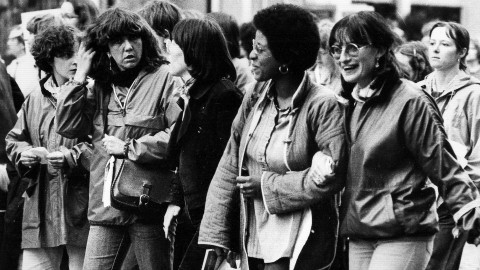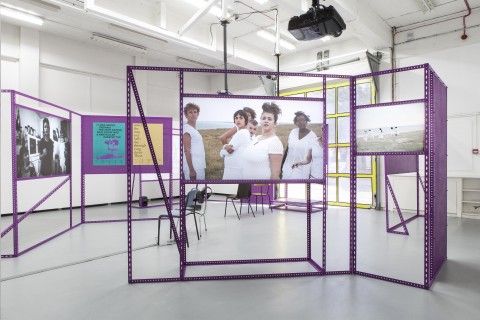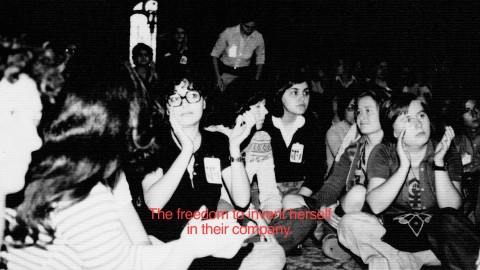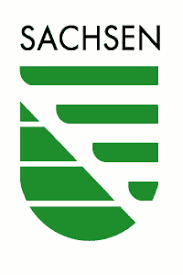The artist Alex Martinis Roe’s work is concerned with the history of feminist groups. She makes connections between various contexts and generations in order to design perspectives of social coexistence from experiences of different places and times. Here, she investigates the question of how interpersonal relationships and encounters contribute to the development of radical thinking. By examining moments of exchange, joint effort and solidarity, she highlights the power of community. She completes extensive research before making her films, and has developed her own technique for editing stories, making social achievements from the past tangible and activating them in the present.
For her presentation in Leipzig, Martinis Roe creates a new film installation with the title “Alliances”. She raises the question of whether a link exists between various feminist, decolonial and ecological movements—on the one hand, because the experiences made by each of them could be beneficial to the others, and on the other, because they all oppose an institutionalised power that has the effect of making distinctions in order to subordinate and superordinate things and subjects in relation to one other.
Alex Martinis Roe (born in 1982 in Melbourne, Australia) lives and works in Berlin. Her works have been presented in international solo and group exhibitions including The Showroom, London; ar/ge Kunst, Bozen; The National, Art Gallery of New South Wales, Sydney; Los Derivados / The Derivatives, SlyZmud Gallery, Buenos Aires; Performing Knowledge, Dienstgebäude, Zurich; Casco – Office for Art, Design and Theory, Utrecht (solo); No New Kind of Duck, Yvonne Lambert, Berlin; Emphasis Repeats, Hessel Museum of Art, Annandale on Hudson, New York. Her newest performance events include: Our Future Network at If I Can’t Dance, I Don’t Want To Be Part of Your Revolution, Amsterdam (2016) und Haus der Kulturen der Welt (2015).
The Art Prize Future of Europe, introduced by Matthias Brühl and Dietmar Schulz in cooperation with the GfZK, has been awarded on an annual basis since 2003. Five experts are each asked to present three proposals; the winner, who receives the sum of 5000 €, is selected by a jury appointed for three years. An exhibition of the prizewinner’s work is held at the GfZK. Previous prizewinners are Kristina Leko, Rafal Bujnowski, Jakub Ferri, Ioana Nemeș, Kamen Stoyanov, Ahmet Ögüt, Christodoulos Panayiotou, Iris Touliatou, Lala Raščić, Taus Makhacheva, Anna Witt, Leon Kahane and Eric Baudelaire.





